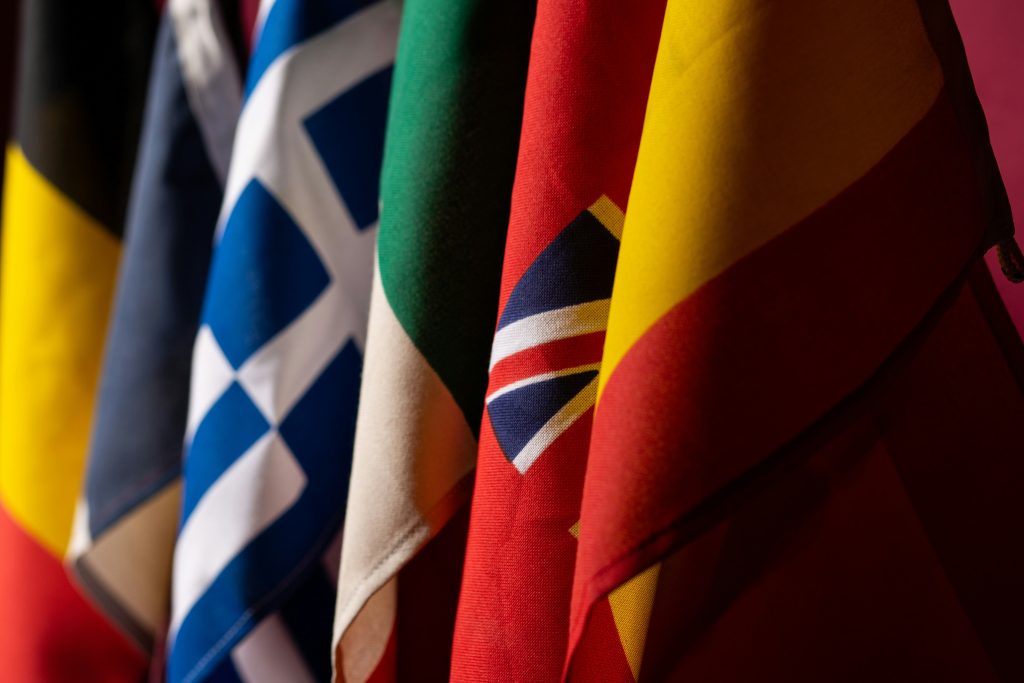United in diversity: Anthems and flags of the European Union

This study’s purpose is to highlight the meanings and context underlying the appearance of the main symbols attached to each EU member country, that are the national anthem and the flag, by also associating the portrayal of this union.
Because they are “united in diversity”, EU countries regularly put forward their colours and anthems, the lyrics and harmonies of which represent as many different historical context and traditions, which are not well known among Europeans. Yet, these symbols perfectly illustrate the concept of a “European federation of nation states” promoted by Jacques Delors, and based on both the uniqueness of each country, and on the lasting reconciliation among the countries in the EU, to the point where the fiercest showdowns between them these days are of the sporting variety! The Union makes sense in a globalising world, yet in its partners’ and competitors view “Europe” is growing old and shrinking. The answer is not to build a new nation or superstate but to forge greater unity among countries and peoples while continuing to respect their unique characteristics and features.
Bearing all of this in mind, this study has the merit of homing in on the nitty-gritty, of getting straight to the heart of the matter, condensing in a few lines the reasons why certain colours, words and tunes make our neighbours’ hearts beat that little bit faster. It is particularly useful, and even unique, in that it does not make do with simply introducing the EU countries’ symbols in alphabetical order, it also illustrates the historical context that led to the development and adoption of the flags and anthems, grouping them together in like categories.
A feeling of belonging is something you build, it is a result of imaginary interpretation and needs to be rooted first and foremost in a political project, but it can also be usefully rooted in such tools as flags and national anthems. In the EU’s case it is not simply a matter of getting the peoples of Europe to feel greater attachment to the star-spangled flag or to the “Ode to Joy”. It is also necessary to help them learn more about the flags towards which their “European compatriots” turn and the anthems they entone on ceremonial occasions, at European sporting events or during the Olympic Games.




